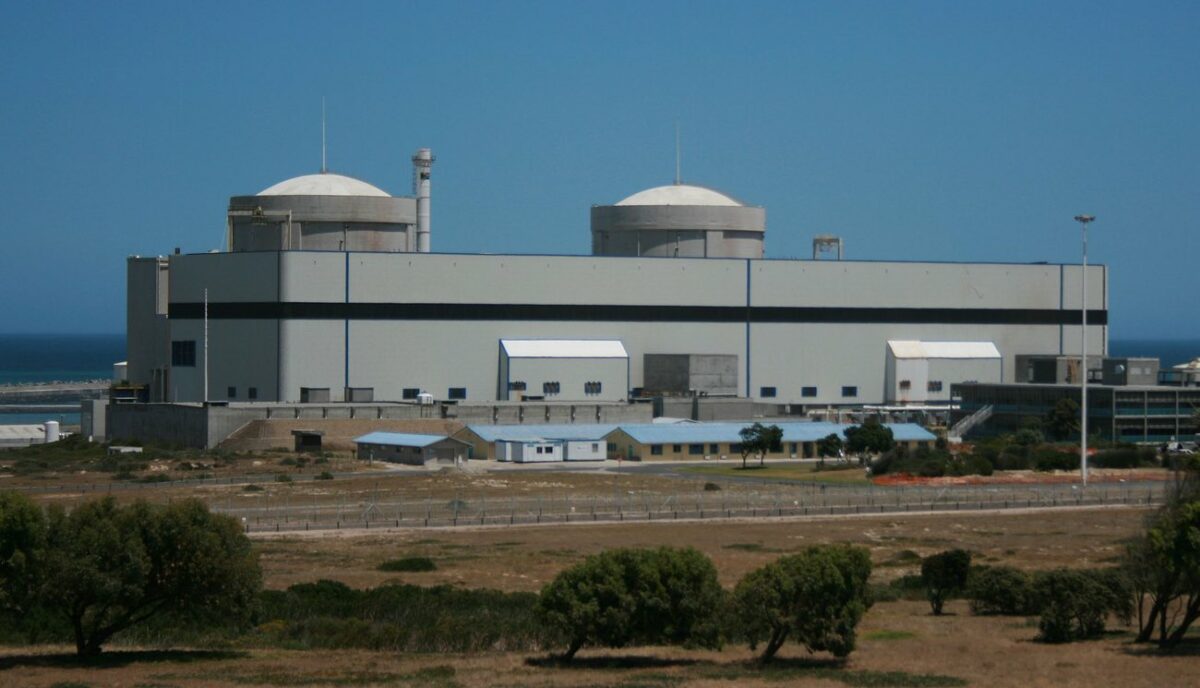The DA has today taken active steps to expose the veil of secrecy around the Koeberg nuclear power plant and the requisite action that must be taken to salvage the plant’s life extension project to prevent a possible grid collapse.
When President Cyril Ramaphosa presented his Energy Response Plan on 25 July, he announced that power plant maintenance was to be prioritized to ensure that the country derives as much benefit as possible from Eskom’s installed capacity. The ongoing challenges at Koeberg as well at the maintenance problems at some of the coal power stations, is testament to a power plant management process that is in crisis.
With the announcement of stage 4 loadshedding yesterday, SA has experienced 1,345 hours of loadshedding and is on course to have 2022 as the worst loadshedding year on record. Ramaphosa’s Energy Response Plan is at serious risk of permanent derailment unless he takes personal charge of its implementation.
Koeberg SALTO report
From 22 March to 31 March 2022, the International Atomic Energy Agency (IAEA) conducted its SALTO (Safety Aspects of Long Term Operation) review mission to Koeberg power station. The purpose of the IAEA mission was to review aspects essential to the safe Long Term Operation (LTO) of Koeberg’s two units. Put simply, it was a review meant to assess the progress that Eskom was making on the Koeberg life extension project.
In a statement released on 31 March, the IAEA review mission made an undertaking to submit the final mission report to Koeberg plant management, the National Nuclear Regulator and the Government of South Africa (Department of Mineral Resources and Energy [DMRE]) within three months. Since June was the projected deadline for the submission of the report, none of the 3 aforementioned entities have made an effort to release the report to the public.
The DA has submitted a PAIA application to Minister Gwede Mantashe to obtain access to the SALTO report. DMRE has since acknowledged receipt of our PAIA application and they are now required, in terms of the PAIA Act, to release the report to the DA in 30 calendar days.
IAEA expertise Koeberg life extension project
Having missed key milestones on its life extension project, including the exodus of skilled personnel, the renewal of Koeberg’s operating licence beyond 2024 is now at serious risk.
To this end, the DA has taken the initiative to submit a Request for Short Term Technical Assistance to the IAEA’s Technical Working Group on Life Management of Nuclear Power Plants (TWG-LMNPP). The TWG is comprised of experts who provide advice to the IAEA and support the programme implementation in the area of policies and strategies of ageing and life management of nuclear power plants. It states one of its objectives as ‘…providing guidance on issues which limit Nuclear Power Plant (NPP) lifetime, practical assistance in identification of NPP lifetime limiting features and mitigation measures…for optimization of the lifetime’.
The DA’s Request for Short Term Technical Assistance to the TWG is primarily focused on asking the IAEA to provide a contingent of nuclear power plant experts for the Koeberg life extension project. The contingent of IAEA expert’s terms of reference will be to work alongside Koeberg engineers on bringing the life extension project back on track and ensuring its successful implementation. In our submissions, we indicated that assignment period for the IAEA experts will only end when the IAEA has certified and approved the efficacy of Koeberg’s life extension project.
Energy Response Plan at risk of derailment
Ramaphosa’s Energy Response Plan is at serious risk of permanent derailment unless he takes personal charge of its implementation from the ineffectual National Electricity Crisis Committee. Data from the DA’s Energy Response Plan Implementation Tracker, which was launched on 11 August, reveals that measures announced by President Cyril Ramaphosa to address the electricity crisis and end load shedding have stalled.
Save for a single photo-op media opportunity that they held soon after Ramaphosa released his energy response plan, Ministers who serve in the National Electricity Crisis Committee have failed to provide regular updates on the progress being made on project implementation. If this committee is meeting, South Africans are in the dark as to the exact nature of their deliberations and the corresponding resolutions that they are taking to address the electricity crisis.
The Energy Response Plan Implementation Tracker is a real time policy monitoring tool that the DA has developed to track progress and measure project deliverables in the implementation of Ramaphosa’s energy plan.
As it stands, some of the critical short to medium term project goals that have stalled include:
- Recruitment or rehiring of experienced former Eskom staff (Engineers, Power station managers);
- Procurement of electricity from neighboring countries (just an admission that negotiations are ongoing);
- Amending contracts with existing IPPs to sell additional capacity;
- Lack of a publicly available plan to Eliminate sabotage, theft and fraud at Eskom;
- National treasury plan to expand tax incentives for residential and commercial installations is still pending.
With Eskom announcing recently that the ‘likely risk scenario’ for load shedding is rated high, South Africa’s power outlook for the year ahead look grim. It is for this reason that the unfolding crisis at Koeberg must be attended to promptly to protect operational safety and guarantee power supply to the grid.
On the implementation of the Energy Response Plan, Ramaphosa should not sub-contract the implementation of the plan to his ineffective National Crisis Committee – instead, he should take active control of the implementation process to ensure timely delivery of project targets.

